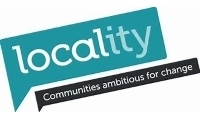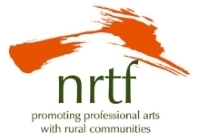T: 01822 851370 E: [email protected]
Visit RSN Survey about life in rural England to find out more.
Spotlight on the RSP - January 18 Edition
Welcome to the first Rural Services Partnership Spotlight of 2019. We’re looking forward to supporting both our new members and existing partners this year. Working together we will continue lobbying for a fair deal for rural communities to maintain their social and economic viability.
In 2019 RSP members, along with our local authority members, will have more opportunities than ever to network and learn from best practice, as we aim to provide a diverse and exciting programme of events. These include:
- National Rural Conference in September
- Seven regional seminars/networking meetingsaround the country on key rural topics. A really great opportunity to network with likeminded rural services professionals
- Two Rural Services Partnership meetings aimed at bringing together non-public sector organisations to network and share best practice on service delivery in rural areas
- An opportunity to work alongside the Rural Health and Care Alliance whichwas launched in October 2018. Working in partnership with the National Centre for Rural Health & Care – we are the only national organisations addressing the inequalities of rural health in England.
And don’t forget we will continue to provide and enhance key services for RSP members with:
- The Weekly Rural Bulletin – a round-up of rural news and analysis
- Rural Funding Digest – a one-stop-shop about grants and funding opportunities for rural organisations.
- The Rural Observatory – a statistical review of rural life. A very useful source of rural data to help inform funding bids and lobbying campaigns.
- Rural Training - In 2019 we will be working with our members to promote e-learning. The first of these is being run by The Foundation for Social Improvement (FSI), read on to find out more.
Since the last RSP Spotlight in early December, the RSP’s membership continues to grow. EE, Parkinson’s UK, Rural Wellbeing and the CSW Group have joined the Partnership. We now have over 146 members representing both the private and third sectors. To find out more about these and existing members of the RSP click here
This month we have been overwhelmed with examples of good practice, press releases and updates from our RSP members about their organisations. Take a look at the following:
Working with the Foundation for Social Improvement (FSI)
 The RSP is proud to be working with the FSI and their rural charities funding courses.
The RSP is proud to be working with the FSI and their rural charities funding courses.
Small charities and community groups in rural communities are seeing the benefits of learning from home, through the FSI’s Developing Your Fundraising Strategy e-learning course.
Recent research shows that 1 in 5 small charities across the UK fear they won’t be able to continue delivering their work over the next 12 months. This would have a disastrous impact on the communities they support, especially in isolated or rural areas where small organisations might be providing vital and unique services.
At the same time, it’s increasingly challenging to raise funds for such work, and small charities in particular have been negatively impacted by cuts to public funding – seeing simultaneously an increase in demand for services, with a reduction in grants.
Many charities, however, are fighting back by investing time in fundraising and building a more sustainable future. The Foundation for Social Improvement (FSI) has recently launched its first online version of their popular full-day training course, Developing Your Fundraising Strategy, to enable small charities to access this support who otherwise might face barriers such as travel time, being volunteer-led, or access needs.
77 small charities were awarded bursary places on the course at the end of 2018, and have already seen the impact of thinking through their fundraising opportunities. A number of organisations based in rural or hard-to-reach locations were among the recipients, giving them access to interactive exercises and modules tailored to small charities, without the barriers of travelling to a major city.
Michael Chard, Anglesey Foodbank said: “As a foodbank it is easy to ask for food and people respond quite well to such requests. However, we need financial income as well. Fundraising is an area where we don’t have experience and I wanted to get advice on how to go about it… Anglesey is ‘off the beaten track’ when it comes to training venues. An e-learning course enabled me to train online and at times which were suitable to me.”
Amber Shotton, Head of Accredited Learning and Compliance, said: “It’s really important to us that small charities don’t face barriers to getting the support they need. We know that rural charities often can’t access training in major cities and that small organisations may be run by volunteers who can’t take a full day out to attend. We’re therefore really excited about the potential of e-learning to address these challenges.”
For more information contact [email protected] or call on 020 7324 4777.
The Developing Your Fundraising e-learning course is now available for purchase through the FSI’s website, with prices tiered according to turnover starting at £25. See more online.
Working with Locality and the Delivery of Neighbourhood Plan
 The RSP continues to recognise the exceptional work of its members, in particular that of Locality, one of our newest RSP members.
The RSP continues to recognise the exceptional work of its members, in particular that of Locality, one of our newest RSP members.
2018 has been another incredibly successful year for Locality’s neighbourhood planning, with the number of plans continuing to grow. Most neighbourhood plans will tackle housing in one form or another, often with an emphasis on housing that meets local needs. Below we outline some examples from neighbourhood plans over the last few years that are trying to do just that.
In many parts of the country people are struggling to get onto the property ladder, or even rent, pushing people out of the villages and towns they have grown up in to find more affordable housing further afield. This is an all too common issue for many neighbourhood plan groups and neighbourhood plan policies are addressing affordability issues through affordability targets that new developments must meet. For example, the St Ives Neighbourhood Plan has a policy in place that states developments of two or more units or sites greater than 0.2ha must provide 40% affordable housing. The policy goes even further and states that this affordable housing must go to people with a local connection to the area. Such a policy is crucial in areas like St Ives, where there is a gap between local incomes and property prices.
There has been an increase in the number of plans that deal with the issue of second/holiday homes. Rural areas around the country are sought after locations for second homes, offering people living in cities a tranquil, country escape. While second home owners undoubtably help support the local economy through spending, demand for second homes has the side effect of inflating house prices to a level often beyond the means of locals. Many neighbourhood plans have sought to put a stop to this including St Ives and the North Northumberland Neighbourhood Plan. The North Northumberland Neighbourhood Plan recognises that the number of second homes has increased significantly between 2001 and 2011. To help put an end to this trend the plan includes a policy to ensure that new residential development coming forward is available to those who want to use the dwelling as their main home, rather than those seeking to buy holiday homes.
These few interesting examples show that neighbourhood planning has real power to bring forward housing that meets genuine local need. However, as with any policy, robust and defensible evidence is essential. Failure to justify policies with evidence risks them being deleted at examination.
A lot of the evidence you need may already exist, meaning that you don’t have to go out and collect it all from scratch. As a first port of call it is always useful to check what information your local authority has available.
Locality have a range of grant and technical support available to help groups producing neighbourhood plans (subject to meeting certain criteria). As part of the technical support, Locality offer a Housing Needs Assessment, which can help provide robust evidence to underpin housing policies. For information go here.
Working with Young Somerset and the Rural Music Network
 The RSP is keen to support and promote projects which enhance young people’s opportunities in rural England. The Rural Music Network is an example of such work.
The RSP is keen to support and promote projects which enhance young people’s opportunities in rural England. The Rural Music Network is an example of such work.
Over the past five years, Young Somerset (formerly Somerset Rural Youth Project), funded by Youth Music, has been delivering a music project called the Rural Music Network. Over this time this project has developed its partnerships, such as BBC Introducing in the West and Michael Eavis (The Glastonbury Festival) that has helped shape the projects model of delivery.
The project, now moving into its sixth year has now set up a strong partnership with the Cheese and Grain in Frome (Somerset’s most influential live music venue and music studios); this partnership will bridge the gap between young people and the music industry and bring them even closer. The Rural Music Network will be based at the Cheese and Grain enabling young people to access the professional musicians, sound engineers, music promoters, event managers, stage managers etc, through a variety of “artist sessions” and master classes.
The aims of the project are to increase young people’s access to the music industry and to increase young people’s skills and confidence in music through three music pathway strands:
- Music Performance – playing solo or in a band, dj, mc or singer songwriter
- Music Production - sound and lighting engineering, live music events, stage management, and studio and recording
- Music Promotion – Artist and Music Promotion, music events management and artist management.
The project will enable young people to select a pathway they wish to develop through engaging with the Rural Music Network Tour Programme.
The Rural Music Network Tour Programme offers the following:
Over two years, four tours will be delivered across Somerset.
For each tour, eight music acts and a tour production group will be selected to go on a four-month Tour. The acts will play eight gigs across Somerset (two gigs a month)
Each music act will be offered three 2-hour music rehearsal / development sessions in between each gig with the RMN music leader. Using their first gig as a baseline for their development and using video reflection of each gig as a development tool to identify areas of improvement.
The Tour production group will comprise of 5-8 young people, each taking a leading role in the promotion and production side of the tour. For example, a tour events co-ordinator, a tour promotions co-ordinator, stage/artist co-ordinator, sound engineer and lighting crew. This group will do all the planning, coordinating, promoting and delivery of the tour, managed by the Rural Music Network Project Apprentice.
The tour is focused on Somerset, enabling young musicians to gain experience of playing in all kinds of different venues (from well-established music venues such as Moles or the Cheese and Grain to playing in Arts Centres, Rural Music Pubs, town halls and village halls). The tour will enable the music acts to gain hands-on experience of working with a diverse collection of music venues, increasing their confidence in working with them in the future. This tour is also focused at increasing the profile of new and up-and-coming music acts and increasing new audiences to support live music in their communities.
In exchange for this tour opportunity each music act is supported to put on a community music making workshop in one of the communities they perform in. This will enable young people both to develop their music performing skills and also develop their music mentoring and tutoring skills as it is essential for musicians to be able to diversify themselves in order to bring in an income from all aspects of music making; be it performing or teaching.
This exciting new phase of the Rural Music Network Project kicks off this year, with the first tour commencing in March 2019 all around Somerset. To find out more contact James Brookes – Project Leader [email protected] For more information please refer to the following link
Working with the CSW Group and their Young People in the South West Project
 The RSP is keen to welcome the CSW Group and looks forward to supporting their youth work in SW England.
The RSP is keen to welcome the CSW Group and looks forward to supporting their youth work in SW England.
Finding guidance and support as a young person can be a tricky task, made even more difficult for those living in rural areas – of which the South West has an abundance – where access to support is often thwarted by lack of transport or provision. CSW have been supporting young people for over 20 years and run a range of programmes, some of which are based within the community.
Our #Focus5 programme, which is funded by the European Social Fund and the National Lottery, through the Big Lottery Fund, works with young people in a location that suits them. Our key workers often find themselves driving down country lanes, bypassing cattle, avoiding floods and getting muddy so they can meet the needs of our young people. This programme offers support to those young people that are disconnected from education and need someone to sit down and gently discuss their choices and identifying where they can go. They also broker access to other provision – including trial days and support whilst in provision. In a recent survey of those who are working with #Focus5, it was noted that one of the best things about the project is the availability of key workers to support young people in the community.
Another CSW led project is Ambitions, a partnership project funded by the European Social Fund. The project will enhance the provision of careers education, information, advice and guidance in Cornwall and the Isles of Scilly. This includes supporting employers to offer a wider range of opportunities to people with special educational needs and disability; support for young people in vulnerable groups; and helping young people to build resilience. Supporting economically inactive and unemployed 15 – 24-year olds Ambitions will support young people to explore their skills and career aspirations through a number of activities enabling them to progress into education, employment or training. By having an extensive partnership model, Ambitions will be able to be delivered flexibly throughout the county which will encourage young people to join and feel comfortable whilst gaining a wide range of support.
Through activity with Local Authorities across the peninsula, CSW offer a targeted service to all young people with an Education, Health and Care Plan (EHCP) and those within designated vulnerable groups, or those at risk of NEET (not in education, employment or training). This ‘Transitions’ service works individually with young people, supporting them with their choices, preparation and includes an element of personal guidance. This service also works with those young people that are NEET. Our Advisers are able to meet young people in community locations that are suitable and support them to find their path to education or employment that fits their needs.
For more information on these programmes, and for details on how to refer a young person, please visit www.cswgroup.co.uk.
And finally, the RSP member news
 22nd January to the 28th Village Halls Week
22nd January to the 28th Village Halls Week
The National Charity, Action with Communities in Rural England (ACRE) and their 38-member organisations are celebrating England’s 10,000 Village Halls. From the 22nd January to the 28th January every county will see a series of events to bring people together and celebrate these crucial rural spaces. The campaign is supported by Defra with an appearance in the week from Lord Gardiner of Kimble.
 Events include performances from Ian McMillan, renowned poet and broadcaster and children’s author and illustrator Steve Antony. In addition, the National Rural Touring Forum has commissioned stand-up poet Kate Fox to write and perform a piece celebrating village halls. For a full list of events visit the ACRE Website. www.acre.org.uk
Events include performances from Ian McMillan, renowned poet and broadcaster and children’s author and illustrator Steve Antony. In addition, the National Rural Touring Forum has commissioned stand-up poet Kate Fox to write and perform a piece celebrating village halls. For a full list of events visit the ACRE Website. www.acre.org.uk
 All change at Bromford
All change at Bromford
One of the RSP’s larger housing associations, Bromford has completed its merger with Severn Vale Housing creating a new 44,000 home landlord. To find out more please visit the following link.
 Institute of Economic Development Annual Conference Review ‘Mind the Gap – Productivity, Place and People’
Institute of Economic Development Annual Conference Review ‘Mind the Gap – Productivity, Place and People’
Nigel Wilcock, IED CEO, provides an interesting commentary and insight about the event and his thoughts for 2019. To see the full Conference Review, visit the following link
Promoting Rural Best Practice
 Many of our members are keen to tell you more about their organisation’s excellent work and with this in mind we have developed a unique area on our website as a resource for them to do so. This can be found here.
Many of our members are keen to tell you more about their organisation’s excellent work and with this in mind we have developed a unique area on our website as a resource for them to do so. This can be found here.
Equally, the RSP are keen to provide opportunities for RSP members to promote their work to the wider RSN network of 25,000, which includes over 140 LAs, community organisations, rural businesses, and parish councils, to mention but a few. Members can send through this information by emailing Jon Turner.
Why Not Join Up!The RSP exists to enable the issues facing the rural areas of England to be identified, information and good practice to be shared and government to be challenged to address the needs and build on the opportunities which abound in rural areas. If you know a rural organisation that would benefit from membership, please ask them to consider joining us. The RSP is a solely rural focused organisation with an electronic distribution network in excess of 25,000 individuals. We reach all sectors of rural England and provide a sustained and respected voice for rural areas at national level. Anyone who wants to talk to us about our role and services of the RSP please take a look at the link https://www.rsnonline.org.uk/page/about-the-rsp or contact Jon Turner to find out more. |




